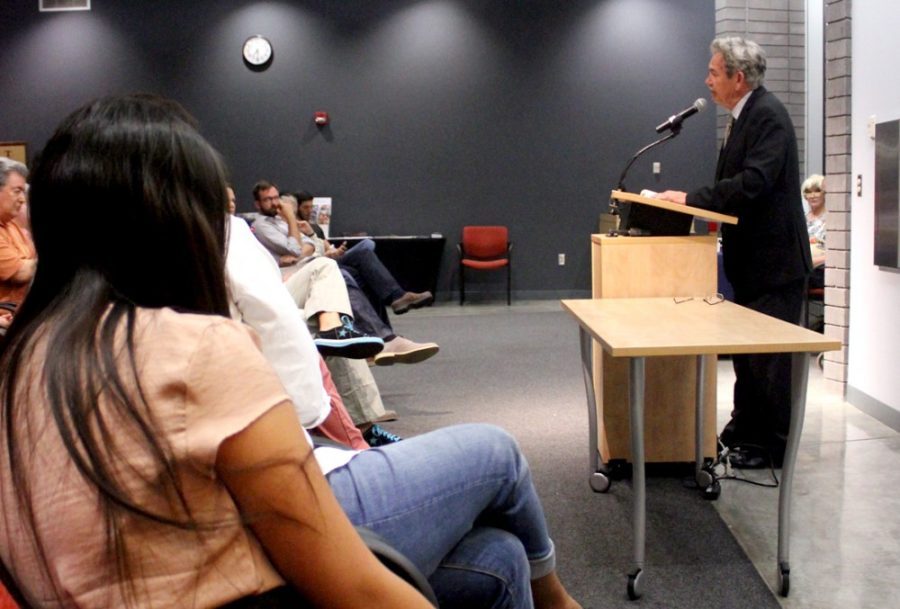As part of Humanities Week taking place this week, the UA Poetry Center invited writer Benjamin Alire Sáenz to deliver a reading of his work on Thursday at 7 p.m. The author of “Sammy and Juliana in Hollywood” and “Last Night I Sang to the Monster,” Sáenz attended a reception by the Jewish Federation of Southern Arizona on Wednesday to welcome him to Tucson. The Daily Wildcat caught up with the writer after the reception to chat about his craft and love for writing.
Daily Wildcat: How did you start writing?
Sáenz: I started writing seriously when I was about 30 years old, but I had actually been writing poems all through graduate school. I wasn’t studying writing. I was studying theology, but I would write poems, and I loved writing. When I was 30 years old, I decided this is what I wanted to do. I don’t know how you go about doing this, but I’m going to go find out. And I went to graduate school at [University of Texas at] El Paso and got my masters in creative writing, and I got a fellowship to Iowa to do a Ph.D., but I still was writing because I really loved it. Then, I got a [Wallace Stegner] fellowship to Stanford, which is a big deal, and I got to write for two years, and it was amazing.
At the reception you mentioned that having a heritage or history inside of you is what helped you write. Is that a part of your writing routine or [to] help you build a story?
I think when you write anything, all of your experiences come together in ways that we’re not aware of. For instance, I wrote a two-page story last year for an event in [Washington]; I just sat down at my laptop, wrote it and that was that. It might have taken me 20 minutes tops. How did I do that? I did that because I’ve been writing for so long that I can just sit down and make it happen. It is like breathing, because it’s a great passion and I don’t know how to live without writing. And I don’t want to live without writing.
What made you decide to write children’s books, young adult novels, etc.?
Well, part of it was I thought it was a challenge, and I really believe in literacy. And children’s literacy, writing books for Latino kids. It’s very strong — I was compelled and impelled to do that, to do something for my community. It’s important to me and remains important.
You mentioned at the reception that having your mother’s medal was more rewarding than the accolades your books have received. Is there anything else that’s rewarding?
Teaching.
Is it rewarding to help shape young writers’ craft and make it better?
Yes, it is. You realize they teach themselves and you watch them teach themselves. You’re more an observer than anything else. It’s a wonderful tool, observing.
I noticed in this book, and in others I’ve looked at of yours, there are subject matters of homosexuality, family dynamics and Chicano identity. How do you go about writing these themes in stories and keep[ing] it diverse and not stereotypical?
I just create characters that are real and they are also Latinos. They also live on the border — they’re just people. To be a writer is to create characters, but the characters have to be something. So they’re what I am. That’s how someone is believable because someone isn’t neutral; no one is neutral. If I were going to write a main character of a novel why would I write a white guy? That doesn’t make any sense to me — there are plenty of them already. So I create a Latino guy who may or may not be gay. I don’t write “gay” stories — I don’t do that. I just write characters and they happen to be gay.
_______________
Follow Ivana Goldtooth on Twitter.









